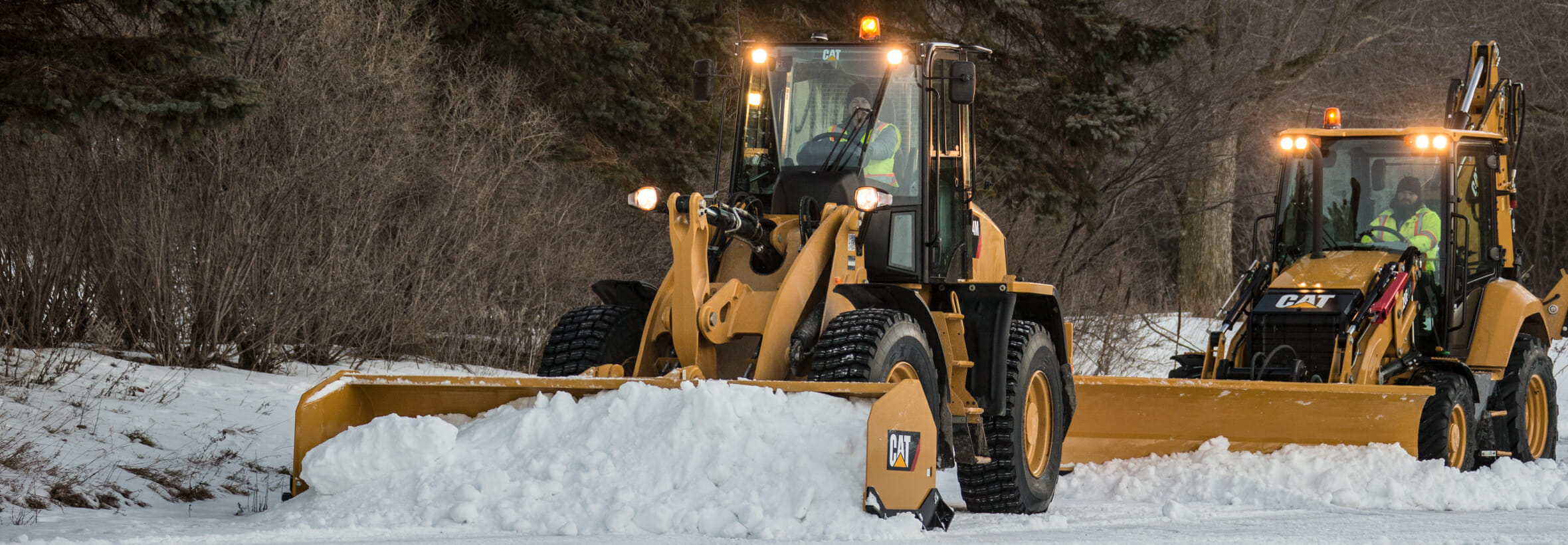
Published on December 2, 2020
Cold Weather Tips for Heavy Equipment
Cold weather is tough on your equipment. Fortunately, there are a number of proactive steps to safeguard your machines when the temperatures start to drop. Implementing a cold-weather-plan can save you time and potentially costly repairs.
Diesel Engines and Fuel Tips
Unlike gasoline powered engines, diesel fuel needs a higher temperature to fire up. The reason is that the hydrocarbons in diesel fuel can begin to gel when it drops below 40 degrees, and if gelling occurs, then the fuel loses some of its viscosity and has a hard time powering the engine components. Here are some things that you can do to avoid your fuel getting sluggish:
- When purchasing diesel fuel, you are better off purchasing it from truck stops versus retail gas stations. Truck stop supplies are typically of higher quality.
- Store your equipment indoors if possible and maintain an indoor temperature above 40 degrees.
- Consider investing in engine block heaters. These plug your machine into a consistent heat source when not in use and will address the fuel viscosity issue as well as other stressors on the engine itself.
- When moving your machines between jobs, consider using engine blankets to protect the engine from the elements during transport.
- Before the cold sets in, inject a low-temp, anti-gel additive to your fuel supply and then run the engine to ensure that the additive makes its way through the hoses and filters.
- Store your fuel filters in a warm area. You might not have the ability to bring the equipment in out of the cold, but store all filters, additives, and additional fuel in a warm dry space.
- Consider switching oil to a lower viscosity such as 5W-40 or a 0W-40 synthetic. Both are good to -20 degrees. You can also find drive train fluid designed for extreme temperatures and you should consider using it for larger machines.
Battery Care
Like your fuel system, your battery is subject to trouble and added stress in cold weather. Simple maintenance and routine inspections can prevent downtime and replacement expenses. All aspects of storage that were outlined above apply to the health of your battery, but here are a few more tips to consider:
- Check your terminals often and make sure that they are tight and free of corrosion. Use Dielectric grease to maintain those connections.
- Assess what you are asking your battery to power beyond the machine itself. A lot of after-market accessories like CB radios or lights are hard-wired to the terminal and these can drain your battery.
- Left out in the cold, a battery will eventually freeze. Consider battery blankets if you can’t get the machine indoors while not in use.
Cold weather brings its own set of challenges when it comes to heavy equipment, but preventive measures can relieve a lot of stress and cost if routinely applied. For more information on how to take care of your machines this winter, contact us at 800.352.2812 .
Posted In: Equipment Maintenance

